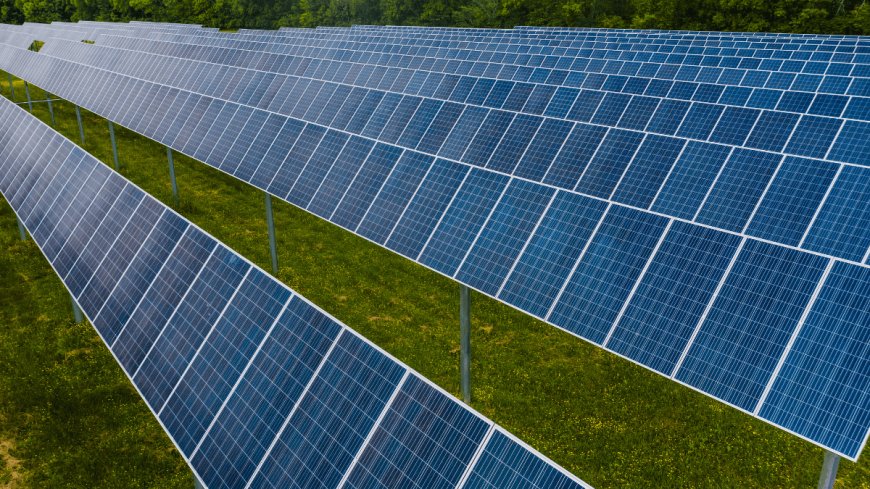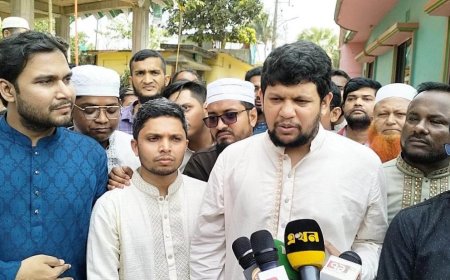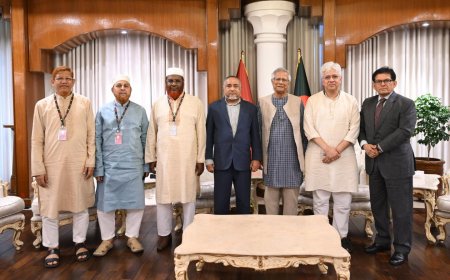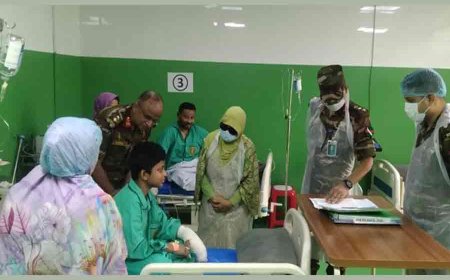Adviser Fouzul suggests that unused government land can be harnessed to generate 10MW of solar power
Adviser Fouzul suggests that unused government land can be harnessed to generate 10MW of solar power

According to Muhammad Fouzul Kabir Khan, the energy and mineral resources adviser, Bangladesh has the potential to generate up to 10,000 MW of solar power by utilizing unused government land.
Speaking at a seminar titled "Renewable Energy, Decarbonisation, and Energy Transition" organized by the Bangladesh-German Chamber of Commerce and Industry (BGCCI) in Dhaka on Tuesday, Khan highlighted that utilizing this land could greatly reduce the country's dependence on fossil fuels such as coal, gas, and oil.
He also pointed out the vast investment opportunities within Bangladesh's renewable energy sector, announcing plans to issue tenders for 40 new renewable energy projects to enhance clean electricity generation. Khan encouraged both local and international investors to seize these opportunities and actively contribute to the country's energy transition.
The seminar brought together policymakers, industry leaders, energy experts, and development partners to exchange ideas and discuss sustainable solutions for a greener future. The discussions focused on strategies and challenges related to implementing clean energy, reducing carbon emissions, and achieving sustainable development in Bangladesh.
In his address, German Ambassador to Bangladesh Achim Tröster underscored the challenges posed by Bangladesh's reliance on fossil fuels, while also emphasizing the investment potential in the renewable energy sector. He reaffirmed Germany's commitment to supporting Bangladesh's transition to a low-carbon future through collaboration in technology transfer and investment, aiming to enhance energy security and address global challenges.
Khan, along with Tröster and Md. Abdul Hye Khandaker, Chairman of the Sustainable and Renewable Energy Development Authority, attended the seminar as chief guests.
Keynote presentations were made by Dr. Ijaz Hossain, an energy and environmental specialist, and Mohammad Alauddin, Rector of the Bangladesh Power Management Institute. The seminar covered key topics such as renewable energy development, decarbonisation strategies, emission reduction technologies for energy-intensive industries, and challenges and opportunities in energy transition. Alauddin's presentation focused on renewable energy, energy mix, solar, wind power, and agrivoltaics, while Dr. Hossain addressed decarbonisation, energy efficiency, and transitioning to cleaner energy sources.
The panel discussion included notable experts such as Mohammad Alauddin, Ratan Kumar Ghosh, Joint Secretary of SREDA; Faisal Rabbi, Energy Specialist at the World Bank; Tanzina Dilshad, Program Manager for Environment and Energy at the EU Delegation; and Md. Tanvir Masud, Head of Project at Skills4SE, GIZ Bangladesh. The session was moderated by Dr. Ijaz Hossain.
M. Maksud, President of BGCCI, emphasized that the seminar aimed to raise awareness, foster collaboration, and share knowledge on renewable energy, decarbonisation, and energy transition. It also provided a platform to explore the necessary policies, regulatory frameworks, technological innovations, and financial models to accelerate the transition to a greener economy in Bangladesh and globally.
The seminar was chaired by Tariq Anwar, Director of BGCCI, with Md. Farooque Khan, Vice President of BGCCI, serving as Co-Chairman. The event concluded with Md. Farooque Khan delivering the vote of thanks.
What's Your Reaction?





















































































